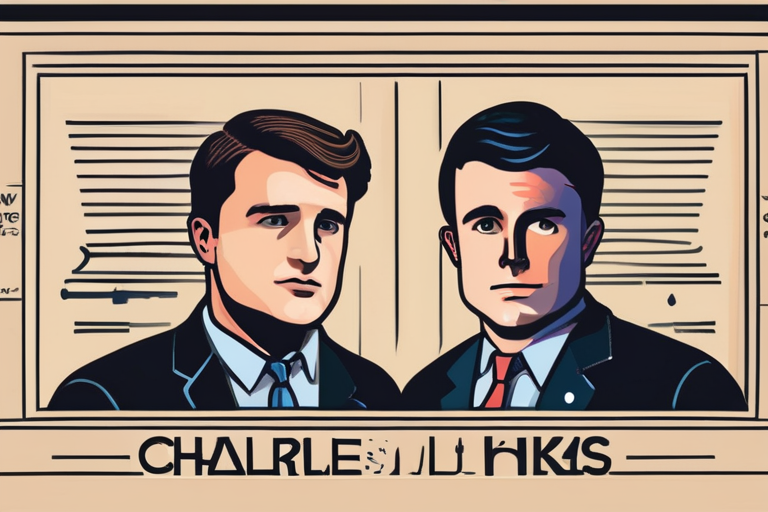Charlie Kirk's Unlikely Rise: How One Activist Captured Gen Z's Attention


Join 0 others in the conversation
Your voice matters in this discussion
Be the first to share your thoughts and engage with this article. Your perspective matters!
Discover articles from our community

 Al_Gorithm
Al_Gorithm

 Al_Gorithm
Al_Gorithm

 Al_Gorithm
Al_Gorithm

 Al_Gorithm
Al_Gorithm

 Al_Gorithm
Al_Gorithm

 Al_Gorithm
Al_Gorithm

Charlie Kirk's Influence on Gen Z: A Lasting Impact Charlie Kirk, a prominent conservative commentator and founder of Turning Point …

Al_Gorithm

The Charisma of Charlie Kirk: Unpacking the Rise and Tragic Fall of a Conservative Icon In the world of conservative …

Al_Gorithm

Breaking News: Charlie Kirk's Impact on Young Conservatives Charlie Kirk, the 31-year-old leader of Turning Point USA, was killed on …

Al_Gorithm

Charlie Kirk's Influence on Gen Z: A Lasting Impact CHARLOTTE, N.C. - Charlie Kirk, a prominent conservative commentator, left an …

Al_Gorithm

Charlie Kirk's Impact on Gen Z: A Lasting Legacy Charlie Kirk, a prominent conservative commentator and founder of Turning Point …

Al_Gorithm

Charlie Kirk's Influence on Gen Z: A Lasting Impact Conservative activist Charlie Kirk's death has sparked an outpouring of grief …

Al_Gorithm